Cataloging-in-Publication data available from the Library of Congress.
ISBN 978-0-8262-1978-7
Acknowledgments
When the research for this project began in earnest twelve years ago, I had no idea that it would take so long or that the debts owed to so many would be so great. I have been privileged to receive support everywhere I ventured in search of sources on the life of Leroy Satchel Paige. The sheer mention of his name still opened doors. I could not begin to thank every individual and institution that assisted in this project, and I hope that I can be forgiven for omitting a name or two that I may have forgotten or misplaced given the long duration of this project.
There are two names that I will never forget, for without them this study's richness would have been terribly diminished. They shared with me candid thoughts and recollections about the times, the places, the events, and the people. I will be forever grateful to Theodore Roosevelt Double Duty Radcliffe and John Buck O'Neil. They opened up to me and, as they said, as never before. Their insider knowledge of Satchel Paige and black baseball was and is unrivaled. I continue to smile every time I think about my conversations with them. These two legends of the Negro Leagues are gone now but never forgotten.
Other Negro Leaguers and associates were likewise generous with their time and kind enough to travel down memory lane to help bring the era to life for which I am beholden to: Hank Aaron, Samuel Allen, George Altman, Jimmy Armstead, Otha Bailey, Ernie Banks, William Barnes, Herbert Barnhill, William Bell, Joseph Black, William Blair, Robert Boyd, William Breda, Sherwood Brewer, Clifford Brown, Ernest Burke, William Ready Cash, Henry Clark, James Cohen, James Colzie, Charlie Davis, Ross Davis, Felix Delgado, Wesley Lewis Dennis, Eugene Doby, Larry Doby,Joseph Douse, Mahlon Duckett, James Dudley, William Dumpson, Melvin Duncan, Henry Elmore, Lionel Evelyn, William Felder, Albertus Fennar, Wilmer Fields, John Gibbons, Louis Gillis, Harold Gordon, Harold Gould, Willie Grace, Acie Griggs, Arthur Hamilton, Charles Harmon, Isaiah Harris, Lonnie Harris, Willie Harris, Wilmer Harris, J. C. Hartman, John Head, Neil Henderson, Joe Henry, Francisco Herrera, Carl Holden, Ulysses Holliman, Gordon Hopkins, Cowan Hyde, Monte Irvin, James Ivory, Verdell Jackson, Clarence Jenkins, James Pee Wee Jenkins, Sam Jethroe, Clifford Johnson, Curtis Johnson, Donald Johnson, Ernest Johnson, Louis Johnson, Mamie Johnson, Ralph Johnson, Thomas Fairfax Johnson, Cecil Kaiser, Larry Kimbrough, Willie James Lee, Larry LeGrande, William Lindsay, William Little, Anthony Lloyd, Lester Lockett, Carl Long, Ernest Long, Lee Mabon, Raydell Maddix, Josef Marbury, Rendon Marbury, Frank Marsh, Edward Martin, Henry Mason, Willie Mays, Nathaniel McClinic, Clinton McCord, Walter McCoy, William McCrary, Ira McKnight, John Miles, Minnie Minoso, Jesse Mitchell, John Mitchell, James Moore, Robert Motley, Emilio Navarro, Don Newcombe, Orlando O'Farrill, Andrew Porter, Merle Porter, William Powell, Henry Prestwood, Marvin Price, Charlie Pride, Mack Pride, Henry Robinson, James Robinson, William Robinson, Jesse Rogers, Thomas Sampson, James Sanders, Ed Scott, Joseph Scott, Robert Scott, Pedro Sierra, Al Smith, Eugene Smith, George Smith, Quincy Smith, Alfred Surratt, Ron Teasley, Donald Troy, Thomas Turner, William Cool Breeze Van Buren, Ernest Westfield, Eugene White, Davey Whitney, Jimmy Wilkes, Clyde Henry Williams, Eli Williams, Eugene Williams, Willie Young, and Jim Zapp.
Talking with the great Bob Feller, Satchel Paige's leading barnstorming competitor from the white Majors after World War II, was an educational experience in itself for which I am truly appreciative.
Acquiring a grasp on Paige's family life to capture the full Satchel Paige would have been absolutely impossible without the help of the Paige family. Robert Leroy Paige and Pamela Paige O'Neal graciously allowed me into their homes and into their memories and their reflections on life with their famous father. To be the first researcher granted such exclusive access is, I must tell you, deeply satisfying personally, professionally, and intellectually. Satchel Paige was an icon of the African American community and countless others who saw him play. To be able to gain knowledge of the other Satchel Paige to share with the reader is both an honor and a privilege.
My sincere thanks to the staffs of research centers and libraries far and wide and especially to those of the A. Bartlett Giamatti Research Center, National Baseball Hall of Fame and Museum, Cooperstown, New York; Alabama Department of Youth Services, Mount Meigs Campus, Sandy Douglas especially; Alabama State Archives, Montgomery, Alabama, Norwood Kerr in particular;National African American Archives and Museum, Mobile, Alabama; Biblioteca Jos M. Lzaro, Universidad de Puerto Rico, San Juan; Black Archives, Miami, Florida; Chicago Historical Society; Lansdale Library, University of Baltimore; Library of Congress; National Archives II, Maryland; Negro Leagues Museum in Kansas City, Missouri; Newberry Library, Chicago; Richter Library Special Collections, University of Miami; Schomburg Collection on Black Culture, New York Public Library; Special Collections University of Virginia Library; University of Georgia Special Collections; Connecticut Historical Society; and the public libraries of Mobile, Alabama; Kansas City, Kansas; Kansas City, Missouri; Memphis, Tennessee; Birmingham, Alabama; Newark, New Jersey; Pittsburgh, Pennsylvania; and the City of Chicago; and to the university libraries of the University of Chicago, University of California at Los Angeles and at Berkeley, University of Memphis, University of Pennsylvania, Tulane University, and Williams College.
My debt is incalculable for the research assistance I have received over the years as this study commenced and when many sources were not digitized, which meant reading virtually every document that might prove valuable, some of them in foreign languages. I could have never completed this momentous journey without the extraordinarily capable and diligent aid of Aldo Regalado, Chanelle Rose, Cecile Houry, Douglas Kraft, and Ameenah Shakir. The longest-standing assistance and support have comeas it always doesfrom Diane Spivey, who took time away from her own research and writing to help with mine. All I can say to her is again, thank you.
I am beholden to my colleagues in the former Center for Research on Sport in Society at the University of Miami: Jomills Braddock, Robin Bachin, Marvin Dawkins, Jan Sokol-Katz, and Lorrie Fleishman. That was a marvelous group to work with, and our time spent in the pursuit of excellence in sport scholarship warms my heart just thinking about it.
For those who read and critiqued various chapters I offer once more a heartfelt thank-you, to David Wiggins, Elliott Gorn, Gerald Early, Guido Ruggiero, James Grossman, Jules Tygiel, Mark Naison, Michael Bernath, Richard Crepeau, Steven Riess, and Sydelle Kramer, and for either constructive advice or timely encouragement my indebtedness is warmly extended to Edmund Abaka, Gregory Bush, Harvey Schwartz, Henry Louis Gates, Hermann Beck, Howard Lindsey, Jeffrey Ogbar, Jeffrey Sammons, Joe Trotter, John Hope Franklin, Keith Wailoo, Lawrence Glasco, Monique Bedasse, Randy Roberts, Raymond Mohl, Roger Buckley, Thabiti Asukile, Vincent Thompson, and Whittington Johnson. A special Hall of Fame salute is owed to Larry Lester for lending his prodigious knowledge of the history of the Negro Leagues to the project. My never-ending gratitude to Frederic Jaher, professor emeritus of history at the University of Illinois at Urbana-Champaign, who read theentire manuscript and gave me sage advice, as he has done throughout my career. I have had the fortune to work with several superb copy editors over the years but none more capable and helpful than Annette Wenda. Thanks and praise are owed to the University of Missouri Press for its long-term commitment to the project.

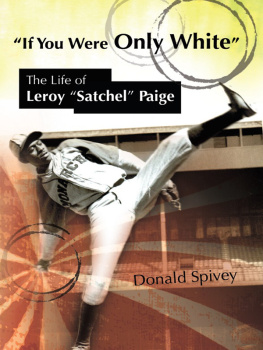

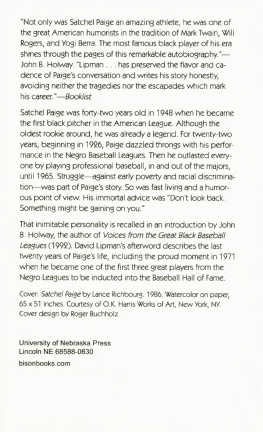
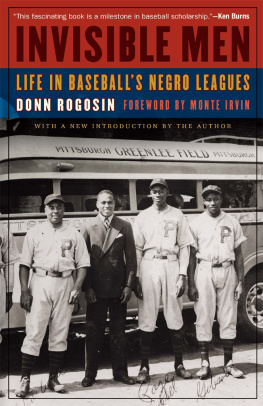
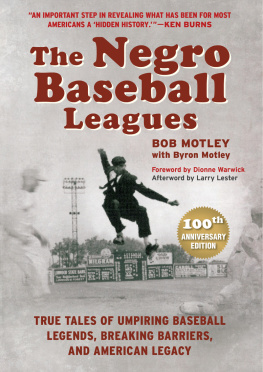
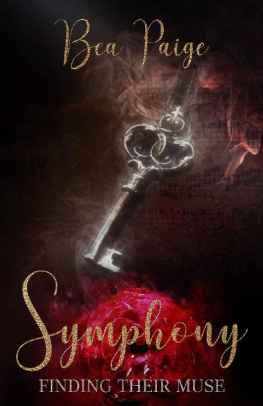

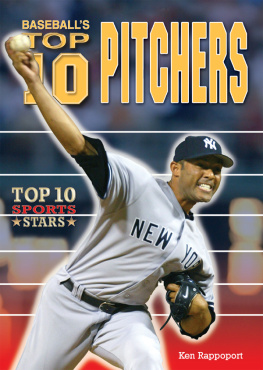

 This paper meets the requirements of the American National Standard for Permanence of Paper for Printed Library Materials, Z39.48, 1984.
This paper meets the requirements of the American National Standard for Permanence of Paper for Printed Library Materials, Z39.48, 1984.